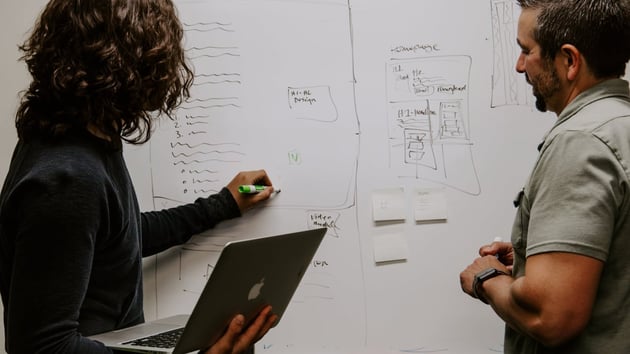After a year working remote - 8 things you can do to be more productive working from home
Concerns over the COVID-19 pandemic prompted many people across the country, and indeed the world over, to consider working from home. Though technology has helped tackle most of the challenges associated with this working arrangement, staying productive at home isn't always easy.
If you are experiencing challenges staying on top of the game, or meeting deadlines while you work from home, these 8 tips should help you.

1. Move around and take small breaks
Working your body parts off is probably not your best bet if you want to stay alert and productive. Taking regular breaks to give your mind and body time to recharge and think, and can go a long way to help you stay productive.
Breaks don't mean taking to social media or indulge the latest tabloid news. Go for a walk, grab some water, or just stand up for a little bit. It's very easy to get stuck at your home in a remote setting, especially when our movements are limited by Covid-regulations. But moving and getting fresh air is as important as ever, and even if it may feel like a waste of time when you're busy going through your to-do list, I promise you that it's not.
2. Say no more often
Being busy is not the same as being productive. That a task can be done does not always mean that it should. It's easy to go on auto-pilot and work though your ever growing task list with little thought on what matters the most. Make a habit of taking some time to assess which of those tasks that are truly essential, and try to say no to non-essential tasks. It's not always easy, but it's probably one of the most productive things you can do.
3. Focus on a single task at the time
While multitasking is possible (even though research show that we are not very good at it), multifocusing is not. We are definitely capable of walking and speaking at the same time. Or listening to music while cooking. But when it comes to focus and doing great work, you can't focus on everything at once.
So if you don't want to have lots of unfinished business at the end of the day, it is prudent to focus on one task at a time.
4. Create a proper working environment
Working from home doesn't mean you squeeze yourself somewhere in the cellar, or in a cluttered corner of the bedroom. Sitting in the couch might be comfortable in the short term, but will cause problems down the line. Remember that there is a reason why ergonomic office equipment exists..
If possible, recreate your office environment, arranging your table and chair the same way they appear in your traditional office setup.
Also be sure you have all the accessories needed, such as a working computer, headsets, and a LED light for video meetings.
5. Declutter your calendar
There is just so much you can accomplish at any given time. Having more than you can comfortably handle on your calendar would be detrimental to your productivity, and is certainly not good for your mental health in the long term. Have a look at your calendar and determine which tasks are important, and which ones aren't too essential. Are there any tasks or meetings that, if you had the choice today, would not have said yes to? If possible, get rid of anything that’s not important to you.
6. Create a strategy for delegation
Another strategy for increased productivity is to become great at delegation. But remember that delegation does not mean shoving everything you can't be bothered to do onto someone else. Be strategic about it, and only delegate once you've assessed if it's something that truly needs to get done in the first place.
7. Turn off notifications when in GSD mode
We have more ways than ever to connect with people. It's not only emails and phone calls that demand our attention. People have a lot of ways to reach us, and they typically expect to get an answer straight away.
Constant interruptions makes getting work done extremely difficult, and we often end up in situations where most of the day went to conversations, meetings, and replying to emails and slack messages.
If you find it difficult to get a few hours of uninterrupted work during a full day of work, you probably need to take action. Start by assessing what apps and tools you don't need to monitor constantly, and turn off the notifications on those.
A few things to ask yourself are:
- What are the main things that are currently preventing you from staying focused?
- How much uninterrupted work time do you currently get per day?
- Do you really need email and slack notifications, or can you set time in your calendar when you check those channels?
- Can you block time in your calendar for some specific work?
If you decide to block out time and turn off notifications, just remember to inform the people that may want to engage with you that you'll have times where you are not looking at your messages, why you are doing it, and how they can get hold of you if it's something truly urgent.
Or even better, set up internal guidelines and routines for how to help each other staying focused.

8. Set office hours
If you are hoping to remain productive working from home, you may have to set office hours. This will help you fight the demons of procrastination and lethargy. Without clear working timelines, you may not be able to attend to your tasks properly in the home environment. Set working hours, for instance from 9 am to 5 pm, with several breaks along the way. Else, you will have an irregular timetable, and you may not have enough time to complete the tasks of the day. In addition, some will face a challenge with “turning off” at all due to the lack of separation between work and private life.





